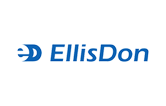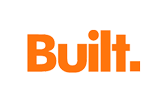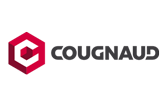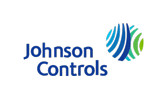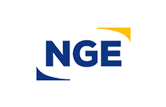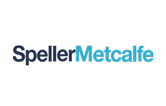5/12 Virtual Town Hall: How Contractors Can Bounce Back after COVID-19 (Transcript)
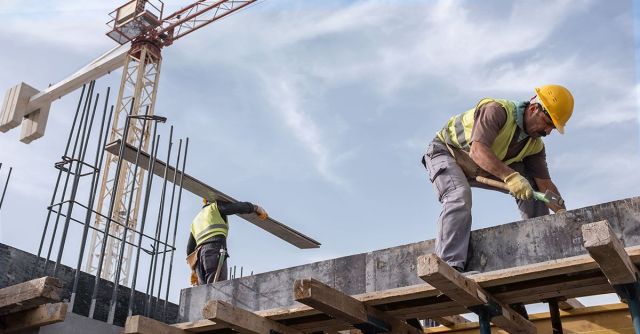
Though we're still in the midst of this pandemic storm, weathering it as best as we can, we're seeing signs that the sun will shine again, sooner than later.
That's why now we're talking about the recovery — how we’ll all be getting back to work and the proactive steps we can take sooner than later to accelerate the re-opening of the country and our construction sites.
Earlier this week, we hosted another virtual town hall to discuss the current state of the industry and what's next.
Speakers
- James McQuaid, Director of Productivity and Systems, Errigal Construction, Ireland
- Dave Bretherton, COO, Apache Industrial Services, US
- David Allen, Corporate VP, Ford AV, US
Listen to the webinar on Spotify or Apple Podcasts.
Transcript
[Yves Frinault] Hi everyone. My name is Yves, I am the co-founder and CEO of Fieldwire. We are a construction startup based in San Francisco. I wanted to welcome all of you who are attending this town hall meeting live.
We are still in the midst of the pandemic. However, I think we are past the initial shock and uncertainty. We are seeing signs that the economy is going to reopen. Europe, which is a few weeks ahead of the US in the pandemic is starting to reopen slowly. So the real question we are going to try to answer today is, What should contractors be focusing on to ensure that we're back to full capacity and the best shape possible with COVID-19? To answer that question today we have assembled an amazing group of contractors that I am going to introduce starting with James McQuaid who is the Director of Productivity and Systems at Errigal Construction. They're based in Belfast, Northern Ireland. They do work everywhere in Europe. Welcome James.
[James McQuaid] Thanks, Yves. Nice to be here.
[Yves Frinault] We have David Bretherton, who is the COO of Apache Industrial Services. They're an industrial services contractor operating in many states around the US and they are headquartered in Houston, Texas. David, it's great to have you here as well.
[David Bretherton] Thank you. Good afternoon.
[Yves Frinault] Good afternoon. Yes, that's true, you're ahead of us in the time zone, James being the furthest away in Europe. Finally we have David Allen who is the Corporate Vice President at Ford AV. Ford AV is a nationwide commercial audio-video integrator and is joining us from Austin, Texas. Thanks for being here, David.
[David Allen] Thank you. Thanks for the invite.
[Yves Frinault] You're welcome. We're going to jump right into it.
As usual I have questions prepared for the first part of the town hall and while we're having that discussion you should feel free to submit additional questions directly on chat. Justine who is moderating the town hall in the background will pick up those questions and organize them so we can cover them in the second part. Let's jump right into it.
James, you're in the UK. Maybe introduce everybody a little bit further. What would be really interesting is to give us a sense of scale of what your typical operation was like before COVID-19 and basically how the volume of activity has evolved over the last few weeks. I think that should help us understand the situation.
[James McQuaid] Sure. We're based in a republic environment, as well. Not Belfast, but we do a lot of work in the UK and abroad.
In terms of where we were mid-March, it was the same week as Saint Patrick's Day, I remember clearly. We had maybe nineteen hundred guys on site at that stage, and then at the end of March we had about two hundred and fifty at that stage. It was a pretty severe round-down.
Since then I suppose Ireland has been on complete lockdown, due to open up this week for construction. The UK has basically just relaxed its measures on Sunday. The rest of Europe is continuing on at low numbers.
It's been a challenge for us really to find out in all these jurisdictions how they have changed and the regulations, but we're trying to keep it simple, really. The basics are still the most important. Getting the practicalities right on-site and making sure the contractors are able to make sure everybody is safe and not just themselves.
[Yves Frinault] What has been the main point of decision for continuing or stopping work? Is it coming from the owners? Is it coming from the general contractors? What are you seeing?
[James McQuaid] It's a combination. Sometimes it just comes directly from the government decisions, really. Just to give you a bit of an idea of what we have at any one time, we have upwards of forty sites. So all of the above, really, to consider. In terms of remobilizing, it's just really about remaining in communication with the contractors but even more so with the workforce to make sure that we're bringing guys back that are happy to come back. Our workforce is pretty dispersed. They're usually from Eastern Europe. So they've locked down in their home country and they're trying to ease them back. It's generally general contractors that we're dealing with in decisions.
[Yves Frinault] David, same question for Apache and how you have seen the market evolve. The industrial sector is probably quite different. Are you seeing any specific types of jobs just being halted or are you continuing as normal? I know Texas is probably less impacted than many states in the US.
[David Bretherton] Typically this time of year, we are running around 7,000 employees on about 200 sites. Right now we're at about 4,500 employees on about 120 sites. So we have had a lot of impact. I would say the impact is more driven on the customer’s decision to either halt work or scale back the size of crews and the size of the work that is going on on their particular job site.
We work mostly in the petrochemical industries. All those plants and things still have to keep running. They have made decisions to push off repairs or capital work or just to scale back. That's what we're faced with. I think it has evened out. We're starting to see our headcounts and man-hours level out and probably we will start picking up in the next month or so.
[Yves Frinault] David, you’re headquartered in Texas as well, for Ford AV. I know you're operating in many different states. Are you seeing major disruptions in the work? Is it concentrated in certain states? What are you seeing?
[David Allen] It's definitely based on the locality. It depends on the city or county and state governments as to what is open and what is not. We have about 95% of our workers still working on jobsites.
There was one point where some jobsites got closed down for a little bit and then they opened back up with certain precautions put in place. For instance, we're doing work in Seattle, Washington. We're flying people in but they have a rule by the governor there that says if you're coming from a state that's not contiguous to the state of Washington, then you have to self-quarantine for fourteen days once you get into the state. That makes it a little bit more difficult to do things with the crew and everything so we're having to adjust for different things that get thrown at us like that. Predominantly, some of our customers were pulling back a little bit, waiting to see what was going to happen. I would say that between 95% and 99% of our workforce is back on the jobs that we already had in place on the books.
[Yves Frinault] Volume is really important in the US. It's one of the key reasons why the policy has let construction continue, because we do not have the same safety net as Europe.
James, do you have technical unemployment in the regions where you are? Were some of the workers basically on furlough but paid by the state? Or is that not the case of the projects you have in Europe?
[James McQuaid] That's very common in all the states we're in. Even just today in the UK, they've extended the furlough until October. Although from August it will be subsidized by the employers. It will be more like part-time work. It's varying across the board. Every state that we're working in has applied those things or approved those things, so it has been pretty good performance by the different governments in that way.
[Yves Frinault] We're seeing France, which is my home country, reopening this Monday. They went on a really strict shutdown but, once again because of the social safety net and technical element, the burden on companies hasn't been quite as heavy because once again they have been able to shut down without massive direct consequences on their employees.
We have extensively covered safety on past town halls and what it means to continue operations in a safe manner. What I would be interested in covering is have you all adapted on the customer side? Is there a type of project that you decided to focus on as a way to keep the business running and basically keep the crews employed?
David, it looks like Apache is already proposing what I could call "post COVID-19 services" with filtration systems and UV lights to clean the air, maybe temperature sensing to reopen factories and such. That's a lot of agility for a company of your size. Can you tell us a little bit more about that?
[David Bretherton] When this first hit the US, a lot of our customers were very concerned about what our workforce was going to be able to do and still make social distancing to be responsible. That allowed us to take action which really was just focusing on getting our workers guidelines on what to do for different scenarios.
For example, if you felt sick or you were exposed to somebody who was sick or exposed to somebody who was exposed to somebody, it gave guidelines to each employee for what to do in those scenarios and what their manager was going to do or what their safety department was going to do. That is how we first rolled out those guidelines to give our employees.
We quickly realized that PPE and sanitation supplies are going to be very critical. We had to jump on that. A lot of that has loosened up but it is definitely helping that we have been able to get hand soap and hand sanitizer and things like that to our employees. A lot of our customers, once they saw that we had these supplies and that we had these actionable plans, asked us to adopt those for their customers and that led us into some other technologies like masks and temperature scanning.
We just happen to be in the business where we use cameras anyway, so we were able to tie those into mass temperature scanning. We tried to buy UV lights from suppliers but they were all on backorder so we ended up making our own designs and using those for our own offices and work sites. When our customers saw them, they started wanting them too, so we started selling them. We're not the only ones using it. The original idea was just to protect our workers on the work site but once people realized that we had those services, we started selling them directly.
[Yves Frinault] That's a really cool story. For those of you in the audience that don't know the benefits of UV lights, you can use that to filter water or to filter air. It just kills pretty much anything when the UV lights are strong enough.
David at Ford AV, have you seen any type of project pick up that would be healthcare related? I know there were a lot of retrofit projects on super fast-tracked healthcare facilities. Is that something you have seen pick up in your own inventory, or have you seen any other types of projects you have focused on pick up?
[David Allen] When this first started, we had a lot of calls about webcams because of all of the people working from home. If you have a webcam and all the devices you need to do that— We were able to help out quite a few customers that way. Now we are getting a lot of calls and have done a lot of education about the temperature sensing cameras, whether it be one-on-one type units or a kiosk you walk up to or even the multi-person type temperature sensing cameras. It's going to depend on what the customer is trying to do and what they want for protocols they have and what their workflow is. How people might enter the office and to figure out what will be the proper solution for them. That is a big push right now. A lot of people are asking questions about it and seeing what their options are.
[Yves Frinault] As an audio-video contractor you are at the core of that remote work extension or those integrated temperature sensing systems for helping offices reopen.
Quick question: how quickly does a company like Ford AV reorganize? How quickly are you able to reorganize on those subjects? Obviously, you're taking a market that wasn't in focus and you just start proposing and offering, maybe looking at the technical complexity of it, maybe the supply chain? How fast are you able to adjust to markets like that?
[David Allen] Pretty fast, actually. Depending on the type of technology that we're dealing with, we have subject-matter experts within our company. We rely on them to bring things to the forefront that satisfy a need or a want that our customers may have. We have a healthcare engineer in our company. Two weeks ago he brought to us what was coming and what is going to be in huge demand. We have actually already fulfilled orders. That was just two weeks ago. We're actually producing a webinar educating our customers and public about it, as well. We are pretty nimble in that regard, especially when it comes to giving the customers what they need and want. We have great experience and we're very nimble at that. When it comes to our own policy, making adjustments, and dealing with ourselves, we may not be quite as nimble, but when it comes to our customers, we're very nimble.
[Yves Frinault] Those are two amazing stories of how it came about and how quickly you are able to adjust at such large organizations. James, are you seeing a certain type of project pick up? Are you adjusting the market focus at all for the projects you do?
[James McQuaid] A lot of our projects are long-term projects so yes, we have already secured them and we are still going back to the same projects we were on before. There will essentially end up being fewer people on site and that will push out the duration but in terms of what we're doing to try and ramp back up, we have been partnering with a London-based startup regarding artificial intelligence making smart hardhats, essentially. The benefit of those and that technology is it can track the indoor location of a person plus-or-minus with 20 cm accuracy which will show what room they're in. It can also detect activity, so walking and talking — can also pick up a call for you, as well. We're using that now, we're just finishing up the trial phase and we have proven that it works for the social distancing aspect, so we are using that to hopefully pitch that to our customers that we are going to try and use that on all of our sites, but that is going to be limited.
It would be far more effective if everybody on each site worked with something like that because the more they ramp up, there's no point in managing our guys down to a communal area that's just not controlled on the same site. It needs to be a joined-up approach, really.
[Yves Frinault] Interestingly enough you talked about the dynamic of the goal being not to be the safest contractor on the site if the other trades are not, but how does that dynamic work on sites if there are stricter regulations on contractors by space? How are you approaching it?
[James McQuaid] It's a combination of practical measures and technological measures. Some of the main contractors are using temperature screening, like the guys I mentioned. It's useful but at the same time you would hope and expect people to not go there with a fever in the first place so on the practical side it's more about staggering start times and end times. One-way traffic, one-way systems, even lunch breaks that they're staggering and leaving many people that are bringing their lunch with them to the workplace instead of all going back down to the canteen. A lot of practical measures that we're working on with every contractor and trying to make sure they're appropriate for the different sites, and every site is different, which is the way we see it, and make sure it's the appropriate set-up.
[Yves Frinault] What has been the most practical? You've mentioned staggering crews, staggering lunches, staggering arrival, separating people in elevators, and everything like that. They did that at Apache. Some of your sites have to be extremely large operations. What have you seen as being the most practical measures that are fast to deploy and adapted broadly by the employees and are expected to be reasonably effective?
[David Bretherton] Staggering work times, staggering lunch times. That's one of the first things that we did, as well. Really working with our customers on how we schedule our work was very critical. We work alongside a lot of other contractors. We had to make sure that with our customers that our employees weren't walking into a situation where another contractor might not be following good guidelines. We really had to work with the customers to ensure that, for example, if we are insulating something, maybe the painter or mechanical guys or instrumentation guys are out of the site before we come on. It's been a matter of scheduling. It has really reduced the headcount on a lot of sites. Typically you might have 200 or 300 people on a site. Now we only have 100-to-150 because we just can't put too many people on the same task. It's really just a matter of figuring out ways to help the guys do their jobs and maintain social distancing and keep them apart. It's been a challenge.
You think you have got a great idea, then you find out it doesn't work and it's just constantly revamping and reworking it to try and figure out the best way to do it. The real trick is to get your employees to buy into it. If they don't believe in the situation, if they don't believe that it's important, then they're not going to do it, and that has been pretty good. I think people are getting the message and they got it pretty quickly. A lot of our folks will say that they're in a situation where it will be hard to social-distance and then we can try and figure it out. For us, we have to rely on our employees buying into it and bringing it to our attention.
[Yves Frinault] Between those social distancing measures and the fact that there are a lot fewer people on-site, how are you seeing the productivity of those sites evolve on a per head-count basis? Are you seeing sites operate more efficiently, less efficiently? What are you seeing?
[David Bretherton] Definitely more efficiently. I'd tell you that the efficiencies that we are seeing right now are as good as I have ever seen them, probably better than I have ever seen them. Safety incidents are way down. The less congested sites seem to be operating at a higher efficiency and more safely. There are certainly some silver linings to this. I am not sure that I want to be in this situation forever but there have definitely been some upsides.
[Yves Frinault] David at Ford AV, what's your take on that subject of safety and productivity right now?
[David Allen] We have a new definition of PPE, that's for sure. In regards to face masks or facial coverings and things of that nature. Gloves, obviously. The question is going to be is that going to remain forever? I do know that speaking from what David was saying about efficiency, situations like this force you to think about things differently. You want to be as productive as you were before, if not more. Out of that arises better ways to attack issues and execute issues. You realize it becomes even more efficient. Like I said, we can hold over a lot of the things that we have come up with. Problems always turn into something good because you learn.
[Yves Frinault] All three of you are very sophisticated users of Fieldwire. When I ask if Fieldwire has helped in that transition, all of you have answered with a similar response, that we haven't changed how we work, pre- to mid-COVID-19, which leads me to think that all of you were pretty digitally enabled companies already.
How do you see technology being an important part of how well you have been able to respond? Or do you think you were already at a point where that transition has been very smooth? James, do you want to start on that one?
[James McQuaid] Just to touch on what David from Apache explained, that everything is actually pretty good right now. That’s our point-of-view, anyway. Where we want to get ahead and look at the upcoming work in the next two weeks’ worth of work and understand if we're actually ready and if we can send guys there without issue. There's a lot of focus on that last aspect, really.
In terms of digital adoption, we have a pretty detailed map that we have been working on for the past seven years. Everything is really about adoption and gathering pace and I am hopeful that over the next six months we can do things that we were expecting to take two or three years. Looking ahead, the work — is it ready? How many guys can we send to the workplace together to get that work done? There's a real focus on that.
The next thing is the visual aspect which, we also use Fieldwire for 360-degree field maps and photographs that really help with site walks to understand, when you have others working remotely, to get the work done. So yes, it has made our life easier in that sense.
[Yves Frinault] Especially with the fact that you're dealing with the very variable volume of headcounts on site during that recovery phase, having that lookahead will be quite critical to plan for that accordingly.
[James McQuaid] That's precisely what we're doing.
[Yves Frinault] David, how are you thinking about Apache on the size of sites you're dealing with? I think the in-person management style is still fairly dominant. The use has evolved with tech. Do you see anything changing?
[David Bretherton] Jobsite walk-downs and understanding productivity and where we are completion-wise— We are seeing a lot of different technology being used so that we don't have to go out and look at the jobs. We are starting to see some technology. We had some job walk-downs we saw last week and we actually did them virtually, some guy is carrying his cell phone around with a camera on, showing the site conditions and what the job scope looked like. That was a first for me. Some technology is starting to appear just to keep people away from the jobsite and away from the other workers and other people that might be bidding to work.
[Yves Frinault] David at Ford AV, do you think there is any long-lasting change that's likely to come from the current situation? I know from my personal experience, I have always had as a small startup a very in-person culture and we are discovering that there are some benefits to working remotely. I am not sure if you are seeing some of that at Ford AV.
[David Allen] About 90% of our office personnel are working from home right now. Before that we liked for everybody to be in the office. We felt that it provided more of a collaborative atmosphere but we are actually seeing that it can work with people not in the office.
The one thing that is really interesting is we were in a transition to Microsoft Teams, moving from Skype for Business to Microsoft Teams before this started. It was a slow transition but this incident made us ramp it up a lot faster. The adoption of MS Teams has been a lot faster than had it not come into play. Being able to use technology like that, we use it also on our jobsites so that every day we have a toolbox talk with our crews at each jobsite and that is done over MS Teams. We have a project manager who is in-office, or at home now rather, and the guys are on the jobsite, and they are communicating about any concerns they have, any safety issues they have, or anything like that on a daily basis. That is all done through technology which we wouldn't have been able to do a number of years ago. We are a technology company so we are always looking for that to be a solution in a lot of things that we do.
When it comes to our scheduling, the one thing that allows us to be nimble is that we have a large backlog. We are always looking at least six weeks out, scheduling our manpower. Then we are seeing if we can even pull some customers up early like we have for the last eight weeks. Pulling them up early to see if we can get some projects done. We can see all of that because of our scheduling software.
Then, being able to look at jobsites when we're not able to do something on the jobsite, we look in Fieldwire at all the tasks in order to complete that job and identify all the things that can be done in the shop if we're not allowed on the jobsite. We use the technology to make us more efficient and it has worked flawlessly during this time.
[Yves Frinault] Any company that has started their transition prior to this, I have seen a huge acceleration. I can just talk from our own personal experience. We have a three-office operation. We have the main office in San Francisco, an office in Scottsdale which is a bit smaller, and an outpost in Paris which is our European office. We have started to do a lot more, like the company all hands, etcetera.
Overnight, though, 100% of the headcount of Fieldwire started working remotely. We had to get really good at it really quickly. It's been surprisingly good. Very often, running an experiment at that scale feels costly but we did not have the choice. We did it and it has been interesting.
That's it for the first part of the panel. I am going to start looking at audience questions. They are not going to be quite as direct so each of you should feel free to take a run at them.
The first question is, what specific indications are you seeing in your respective markets that make you believe that activity will pick back up in the near future? Whether it's in the next few months or more, what are clients telling you, what are you seeing there? James, if you want to start.
[James McQuaid] In a general sense, the official end dates of the projects haven't actually moved, so that puts pressure on everybody involved. Everybody is trying to get these projects cropping up as safely as possible and still achieving the end date in a lot of cases. I cannot see how a lot of these projects won’t miss their end dates but there has to be that common sense approach to that.
There is that appetite to ramp back up. We know that we won't get that same level of personnel on site as before, but we can still get that same amount of work done with less guys. That's where honing in on things that both Davids have talked about there, on making sure that we're looking ahead and planning ahead. They're absolutely critical. Everybody has the appetite to get back to doing the work. We all want our guys to be earning money and earning a wage and feeding their families. It's in everybody's interest. It's not just the main contractor or the governments or anything.
[Yves Frinault] Europe feels like a policy-driven market, basically states letting their economy reopen. Do you think you're getting accurate visibility on what's happening there?
[James McQuaid] Germany is a good example, where we have a fairly large project in Frankfurt and we are partnering with DPR on that one. Now, that job has never stopped and Germany as a country has managed the COVID situation as well as anybody in the western world. If we just follow the lead of the government in that sense, we can't really go outside of that. We don't want to go outside of that, we need to make sure all of our guys are comfortable, and that's the primary thing for our workforce, making sure that they're comfortable going back and that the measures are in place and we can then reliably get all of the work done that we need to.
[Yves Frinault] David at Apache, how are you looking at the situation? What are the early signs of the market reopening for you?
[David Bretherton] It's just customer interest and pricing and availability of workforce. They're starting to ask those questions and that is usually a good indicator that things are going to start coming back. I agree that I don't think it's going to come back to the level that it would have been without the virus. It's going to come back, but not fully at 100% this year. We're getting hit by a double whammy — we also have the oil prices to worry about. For us that is certainly part two of it. Maybe not everybody is in the same boat, but for us I know that we're not going to have the year that we would have hoped. I don't think the petrochemical industry year is going to be good, even if everything starts to come back to normal.
[Yves Frinault] I think it was the first time we hit negative prices this year which I would say is unusual and unsatisfactory for the vertical. Are you expecting a degraded market independently of the oil prices for a matter of months? Or years?
[David Bretherton] A lot of our customers have the ability to push off some of their work if they want to, so I think a lot of them are probably pushing off some of that work until 2021 now. There are some things that just have to get done and they can't avoid it. We will come back but it will be scaled back a little. We are doing a revised budget and looking at Q4 probably being about 85% of what it was going to be.
[Yves Frinault] That's a really relevant number. David, how are you looking when you're thinking about the audio-video integrated market?
[David Allen] We are seeing our sales pick up and that just means that people are feeling more comfortable with moving forward with projects and the other big driving force is people want to get back to work. The leaders are really noticing that, and of course it's affecting the economy. When people aren't working, the economy is not growing. That's a really big driving force and it's just a matter of doing it safely and doing it so that we don't create another spike in people getting the virus.
[Yves Frinault] Reopening the right way so that we don't create another wave of uncertainty in the market that will kill more businesses. Really difficult question, you should feel free to pass if it’s uncomfortable: Would you ever consider performing pre-employment or randomized COVID tests to find asymptomatic cases in your company?
[David Allen] I don't think we would. No.
[James McQuaid] I think that the testing equipment, especially in this part of the world, is maybe giving the wrong readings 30% of the time, so until that's solved or developed further, it's not really a runner for us.
[David Bretherton] For us, I don't think it would be technically possible. I just don't think there's a way to do it right now so it's irrelevant for us. We are just trying to address that by other issues.
Everybody comes on the jobsite for us, we have a questionnaire we fill out. I guess they could lie, but we try to ask everybody the same types of questions to understand what their health is like and the health of their family that they've been around and we are hoping that they are honest about it and if they are, that's a good way to try and prevent an outbreak. Like I said, we have 4,500 people and we haven't had a single case yet. We had two cases actually, but they definitely originated from outside the workplace.
The workforce understands the seriousness of it. We're trying to work with people who are uncomfortable coming to work the best we can. If people feel like we're trying to do what we can for them if they're uncomfortable, they will tell the truth and they will be forthcoming in their situation. Until testing becomes widely available and simplistic, I don't know any other way to do it, really.
[Yves Frinault] The greater question is the question of responsibility of having employees that catch it in the workplace. I think there is a federal task force that is working on it right now, for basically administering the mass testing, and the idea is to create an environment where as long as an employer is compliant with mass testing policies and synchronization and safety on their jobsites, they cannot be liable for the consequences. Once again, it's going to happen many times over and there needs to be an environment that favors mass testing but at the same time just manages the liability of one's employer. It's a hard problem. I think it needs to run through the state courts before it is approved.
[David Bretherton] If it was available, we would do it. It's just not really available.
[Yves Frinault] The healthcare industry hasn't caught up yet on the production of those tests and there is a long lead time on producing the volumes that we are going to require to mass-test the whole population everywhere.
How is government involvement in saving construction tech from bankruptcies in the US? Let's talk about safety nets for both employees and businesses and how those situations differ from the US, for example. Australia, for example, is being hit pretty bad right now because a lot of construction has been shut down there but they don't have quite the safety net that Europe has for the workers. How are you thinking about that, James? We talked about technical unemployment in Europe with the state taking a lot of the peril upon themselves. What else are you seeing that is helpful to businesses?
[James McQuaid] The key point is that businesses need to take appropriate action to try and make sure they have enough cash to get through the period. Of course we don't know how long this period will last, but let's say 12-to-18 months for talk’s sake. The government might have separate schemes where they might offer loans at zero interest or things like that, and there has also been a pretty big investment into grant funding for not just keeping companies afloat but for developing this digital transformation aspect for the businesses. There's definitely support available, but there will definitely be companies that won't make it through the period because they haven't taken the appropriate action to keep themselves safe.
[Yves Frinault] David at Apache, have you seen any government targeted initiatives to support the sector or to support the employees that were not able to work during that time?
[David Bretherton] A significant portion of our workforce are able to— The unemployment money is able to sustain them pretty well. When you're talking about higher level employees, I don't think the unemployment is going to be that attractive to them being able to be out of work. There's a line of where somebody feels comfortable with unemployment as all we can offer because we are too big to qualify for most of the programs.
I do have friends who are in small companies who are taking advantage of some programs the government is offering. They seem to be very happy with that situation. We are lucky to be in the critical infrastructure side where we are able to keep most people employed. Those that don't feel comfortable working can collect unemployment when normally they couldn't. That program seems to be working well for our folks.
A lot of people are offering the option to work from home if they feel uncomfortable with it. We have had layoffs, though. There's no doubt about it. If unemployment is something that can't get them through, I don't know how they're dealing with it. We are trying to keep everybody that we can which hurts our bottom line but I feel strongly that we are here for our folks and employees. Apache takes pride in how we take care of our employees so we are doing everything we can for them. The government isn't particularly trying to help any companies of our size, to be honest.
[Yves Frinault] David, are you seeing a similar story over there at Ford AV?
[David Allen] Yes, same thing. Fortunately we haven't had to lay anybody off but we do have a couple people furloughed. I don't think any of those have taken any unemployment at this time. There are the loans, the forgivable loans. They're mostly being offered to small businesses. We have to follow a certain regimen to be able to have those loans forgiven or you have to pay them back. The government is doing what they can to keep businesses in business through this.
[Yves Frinault] We have seen the same thing in our space as a VC-funded startup, but we decided not to apply for any of the loans and we haven't had to let go of anyone. The issue of the economy that needs to be protected the most is the really small businesses like the restaurants and the small entrepreneurs that don't have the bankroll to survive for months with an integrated environment.
Will post COVID-19 observe a shift or change in the requested skill set for the construction industry? What are those skills that you're starting to see surface up to be more prominent since COVID-19? Do you see any specific type of labor that will be in high demand during this recovery?
[David Allen] No. I think it's really just going to be market-driven in a sense that our people— Is this going to cause the people to change the way they build buildings? If there is going to be a change in that direction, then we may have to learn new technology or new ways to do things. That still remains to be seen. Will this COVID outbreak be a cause to change the way that we do things? We don't know yet, honestly, because that probably won't happen until— Buildings are just being thought of right now.
[James McQuaid] I have been in the area for seven years now and particularly within the last two-to-three years there has been a real shift. People are becoming more open-minded to technology now and in the construction industry in general there is a real opportunity to finally advance that to the level it can get to. There's some great technology out there, and that's stuff you can get straight off the shelf that can help you with all that noise. Now in the next eighteen months is a real opportunity to invest in that and to start getting people from different skill sets and different backgrounds to help you on that journey because you need that outside perspective. You can't do it alone. Those are the things I would encourage people to take away from it.
[Yves Frinault] It's a unique reason to experiment and improve right now because we just don't have a choice. We are seeing it for us as a startup. Most contractors are experiencing severe reasons to change. The other thing is in an integrated environment, only the best contractors make money. In a bull market, everybody makes money, but I think we're going to be in a market where only the best in class will do well. David, any thoughts on the industrial sector before we wrap today up?
[David Bretherton] The workforce has to be more technically skilled because of the different technologies that everybody is adopting. Would I have ever thought twenty years ago that people would have a handheld device that could report what they're doing sitting right next to them? No, I could have never predicted that — ever. Yet, you have people who are skilled workers but certainly not office personnel who are working with a tablet, guys doing insulating with a tablet next to him where he is putting his information about what he is doing productivity-wise and whether he has completed a task or taking a picture of the task when it's complete with Fieldwire-type programs.
The people that resist technology are going to get left behind pretty quickly. That includes those end people. You have to adapt and understand these technologies if you want to survive. That goes with everything. Things move forward, and if you're not moving forward you are going to get left behind.
For our industry, the real problem is going to be that we are not going to have room for new people coming in during this downturn for a while. That's a problem because we rely on people coming into our industry to fill in for the folks who are leaving the industry and right now there's going to be a real lack of our ability to hire those people coming in to learn the industry, and that's going to hurt us down the road. I think that's the problem. It's going to be a really tough situation with young people graduating either high school or college and looking for a job. It's going to be tough. They thought it was tough five years ago. It's going to be really tough now.
[Yves Frinault] I started working out of the 2008 recession, so that really hits home. On that, we are going to wrap it up for today. First of all I want to thank all of you for providing your point of view on the situation. It was enlightening for me and hopefully it was for the audience as well.
I want to thank everybody who dialed in live today to the town hall. If you want to access the recording of today's town hall, we're going to post it on LinkedIn. To find my LinkedIn easily just go to Fieldwire.com/CEO. It will redirect you to LinkedIn where we post most of our content. Feel free to add me as well.
We are always interested in hearing what's happening all over the world and connecting people together when we can. Once again thanks to the team at Fieldwire who put this together. It's a lot of work to put this together and record this.
I wish everybody a great Tuesday, and thanks everyone, and thanks to our panelists today. Bye everyone.

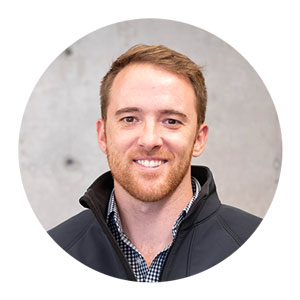 Yves Frinault •
Yves Frinault • 



